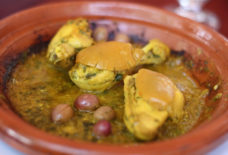Analysis Across the Arab World, Women Are at the Forefront of the Revolution
In Algeria, Yemen, Sudan and Egypt, women are at the helm of major change. But don’t be fooled: Their rights still lay buried
SOURCE: HAARETZ
BY: ZVI BAR’EL
Alaa Salah, 22, is the most recent female icon created by the Arab Spring. This young woman, a university student, achieved fame and glory when she stood on the roof of a car in the Sudanese capital, Khartoum, and enthusiastically chanted: “My grandfather is Taharqa,” a reference to the king of the ancient African kingdom of Cush, and ”my grandmother is Kandaka,” an apparent reference to an ancient Nubian Sudanese queen and to warrior queens more generally.
Salah has already been crowned the modern Kandaka, a woman fighting for the rights of the Sudanese people and a model to be emulated by women in the Arab and Muslim world who are fighting for their rights. All protest movements, particularly in Arab countries, in which there is prominent female figure earn special admiration from the public, especially in the West, which attributes added, feminist value to the protest, as if it is not only a revolt against the regime but a fight for women’s rights in countries where such rights are suppressed.
Such status was accorded to Tawakkol Karman, the Yemeni journalist who won the Nobel Prize for her role in advancing freedom of expression and journalistic freedom in her country and for her public activities during the Arab Spring, which led to the ousting of President Ali Abdullah Saleh. Karman is a renowned international figure and perhaps among the few Arab women whose work still resonates among those who follow the women’s movement in Arab countries.
The memory of other similar female figures is increasingly fading. It may be easier to remember those who died in the course of their fight, such as Iran’s Neda Soltan, who was killed during protests in 2009, or women who were sexually assaulted, as occurred in Cairo’s Tahrir Square in 2011.
The participation of Arab women in civil revolts and national struggles against occupation and oppressive regimes is neither new nor extraordinary. The history of Egypt, Yemen, Algeria and Sudan, to mention just a few of the countries that have been attracting recent international attention, are replete with prominent women who have pushed for political change and brought it about.
A new suggestion that a statue of Alaa Salah be created in Sudan as a symbol of the revolution recalls the image of the Egyptian woman on which the Egyptian sculptor Mahmoud Muktar based his sculpture “Egypt’s Renaissance.” At the time, Egypt was deep into its fight against the British occupation and the sculpture depicts the woman removing her headscarf and resting her hand on the Sphinx, as a symbol of the struggle for national liberation.
This was a period in which the women’s movement in the country also awoke, led by Huda Sha’arawi, who publicly removed her veil and worked at the national level. It was also when actress and theater owner Fatma al-Yusuf, who founded the important political magazine Ruz al-Yusuf, was in the national spotlight.
Years later, the female psychiatrist Nawal el-Saadawi became prominent in the feminist struggle. She wrote dozens of books about the struggle for women’s rights and about their condition in prison. She harshly criticized the regime of President Anwar Sadat and the country’s religious establishment and was ultimately put on trial for harming religion and “public order.”
The Arab Spring has been the subject of a major wave of studies about the role of women in revolutions and as a new ray of light in the Arab and Muslim world, which is beginning to recognize the role of women in political struggle. Many of them – including Dr. Laila Soueif, or Dr. Mona Mina, the spokeswoman for Doctors without Borders in Egypt, or Dr. Karima al-Hafnawi, all of whom worked tirelessly at the helm of demonstrations in Egypt – are long forgotten. It is only now that Alaa Salah has become a public figure that it has occurred to the Arab media to mention their work.
Algeria’s turn
This year it was the turn of Algeria, where protests against President Abdelaziz Bouteflika, who resigned in response, were dubbed the women’s revolution because of the major involvement of women in the mass demonstrations in city squares. And now Sudan has produced its own female symbol.



